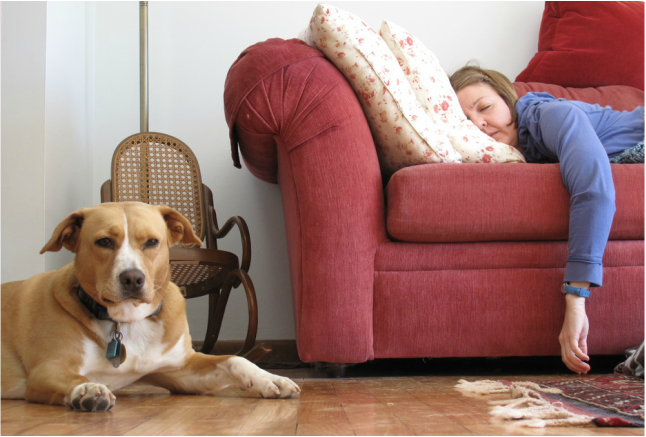When I first start working with a new client, they are eager to talk about diet and exercise and weight loss. Sure, all of those are important for overall health. What I really want to know, from them and from you, is: how much sleep are you getting each night? Is it quality sleep? How many times do you awake during the night? Are you restless? What time do you go to bed? What time do you wake up?
Why is sleep more important than diet and exercise in determining health and well-being? Because if you are consistently sleep deprived you are creating a hormone imbalance that will negate many of the positive aspects of diet and exercise. Research shows sleep deprivation causes two hormones to malfunction. The first is gherlin, the hormone that signals when to eat. When you are sleep deprived, you produce more gherlin leading you to eat more often. The second is leptin, the hormone that signals when to stop eating. When you experience sleep loss, you produce less leptin and so you don't stop eating when you normally would.
When you are sleep deprived, you eat more on a slower metabolism.
It is not necessarily that you will lose weight if you start consistently sleeping well, but you will gain weight if you are sleep deprived. One of the major keys to taking exceptional care of yourself is to prioritize sleep and make it sacred.
Three Ways To Consistently Sleep Better NOW
One. Go to bed and wake up at the same time every day, including weekends. This will create stability in your sleep pattern and help reset your hormones. Aim for 7-8 hours of sleep each night. Respect your biological clock. (Source).
Two. Remove all electronics from the bedroom. ALL of them. The TV. The cell phone. The iPad. All emit a signal that disrupts your circadian rhythm. How? The light emitted by them signals the brain to delay the discharge of melatonin needed for sleep. Beyond that, their physical proximity is a temptation few can resist given our social media and e-mail addicted tendencies. Give in and it creates a cognitive stimulation that disrupts your sleep cycle. (Source).
Three. Create a ritual around going to bed. Light a candle. Massage your feet. Put on soothing music. Write in a gratitude journal. Have a practice at night that helps you wind down and motivate the relaxation response in the body. "A ritual sends a signal to your body and your mind that it is time to slow down and fall asleep, " (Dr. Gerard T. Lombard, Sleep to Save Your Life, p. 45).
Now it's your turn. Have any great tips on how you get a good night's sleep? Share them in the comments below!







 RSS Feed
RSS Feed